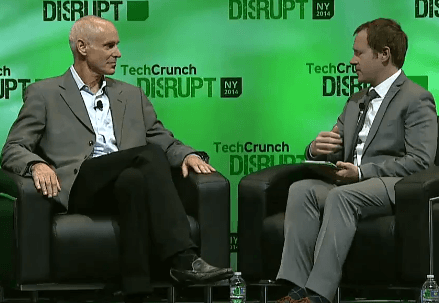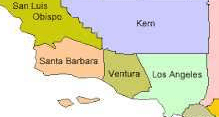 Effective June 1st, all Sprint contract and prepaid customers, as well as those using Virgin Mobile USA and Boost will find their wireless data speeds throttled if Sprint finds they are among the top 5% of users on a congested cell site.
Effective June 1st, all Sprint contract and prepaid customers, as well as those using Virgin Mobile USA and Boost will find their wireless data speeds throttled if Sprint finds they are among the top 5% of users on a congested cell site.
Text messages are being sent to all customers about Sprint’s new “fairness algorithm” that it will use as part of its data “prioritization management.”
“Beginning 6/1/14, to provide more customers with a high quality data experience during heavy usage times, Sprint/Virgin Mobile USA/Boost may manage prioritization of access to network resources in congested areas for customers within the top 5 percent of data users.”
Such text messages are unlikely to be understood by average customers who have no idea how much data they use, don’t understand what “prioritization of access” means, or what would make them a “top 5 percent” data user. What many do understand is that they were sold “unlimited use” plans that will be much harder to use if they are identified as a 5%‘r.
Fierce Wireless found answers to several unanswered questions:
- Boost and Virgin customers exceeding 2.5GB of data use a month used to find their data speeds cut to 256kbps until the beginning of their next billing cycle. In March, Sprint announced it was further cutting speeds in the punishment zone to 128kbps for affected prepaid customers;
- Sprint’s postpaid/prepaid customers are likely to find themselves throttled once they exceed 5GB of usage per month.
 Sprint says the throttle will only be activated on “congested cell sites” and will impact WiMAX, 3G and LTE 4G networks owned by the company. Anyone who has used Sprint’s 3G network will discover most urban and suburban Sprint cell towers are frequently congested, judging by the low speeds many customers endure. Rural customers or those served on the edge of a suburban area may never find themselves throttled and Sprint promises once traffic clears, the throttle is shut off.
Sprint says the throttle will only be activated on “congested cell sites” and will impact WiMAX, 3G and LTE 4G networks owned by the company. Anyone who has used Sprint’s 3G network will discover most urban and suburban Sprint cell towers are frequently congested, judging by the low speeds many customers endure. Rural customers or those served on the edge of a suburban area may never find themselves throttled and Sprint promises once traffic clears, the throttle is shut off.
At the same time, once Sprint labels you a “heavy user,” they can leave you in the penalty box for up to 60 days because the network prioritization will also apply during the following month of service.
“Customers that continue to fall within the top 5 percent of data users will continue to be subject to prioritization,” Sprint said.
The approach “will enable us to provide more customers with a high quality data experience during heavy usage times,” Sprint said in a statement sent to FierceWirelessTech.
Other wireless carriers also have employed speed throttling to control their grandfathered “unlimited data” customers, Fierce Wireless notes:
During September 2011, Verizon Wireless implemented what it termed a “network optimization” plan to limit the bandwidth for the operator’s top 5 percent of 3G smartphone users who are on a grandfathered unlimited data plan. (Ed. Note: However, because of FCC requirements, Verizon cannot throttle its 4G LTE customers.)
One month later, AT&T Mobility instituted a similar plan, targeting the top 5 percent of users on unlimited plans in specific high-traffic locations. However, AT&T was forced to alter its approach in early 2012 after an outcry from users who were unprepared to have their speeds reduced, particularly in cases where some of them had only consumed 2 GB of data. AT&T’s revised policy slowed speeds of unlimited data users who exceeded specific data thresholds.
T-Mobile US also uses a form of prioritization, noting “certain T-Mobile plans may be prioritized” over service plans under its GoSmart Mobile prepaid brand.


 Subscribe
Subscribe
 Smit also promised major broadband speed upgrades and other improvements for Time Warner Cable customers, but nobody mentioned Comcast’s gradual reintroduction of usage caps on residential broadband accounts.
Smit also promised major broadband speed upgrades and other improvements for Time Warner Cable customers, but nobody mentioned Comcast’s gradual reintroduction of usage caps on residential broadband accounts. Wireless operators are playing up fears that without comprehensive reassignment of wireless spectrum to their businesses, a massive data crunch will slow wireless networks to a crawl.
Wireless operators are playing up fears that without comprehensive reassignment of wireless spectrum to their businesses, a massive data crunch will slow wireless networks to a crawl.
 Companies in the Pacific Coastal region of California are concerned about losing wholesale access to Time Warner Cable’s business fiber network if the cable company is acquired by Comcast.
Companies in the Pacific Coastal region of California are concerned about losing wholesale access to Time Warner Cable’s business fiber network if the cable company is acquired by Comcast. Currently, third-party access to cable broadband technology is provided on a voluntary basis by cable operators. Regulated telephone companies like Verizon and AT&T that serve California are required to offer open access to competitors, at least on their copper line networks.
Currently, third-party access to cable broadband technology is provided on a voluntary basis by cable operators. Regulated telephone companies like Verizon and AT&T that serve California are required to offer open access to competitors, at least on their copper line networks.


